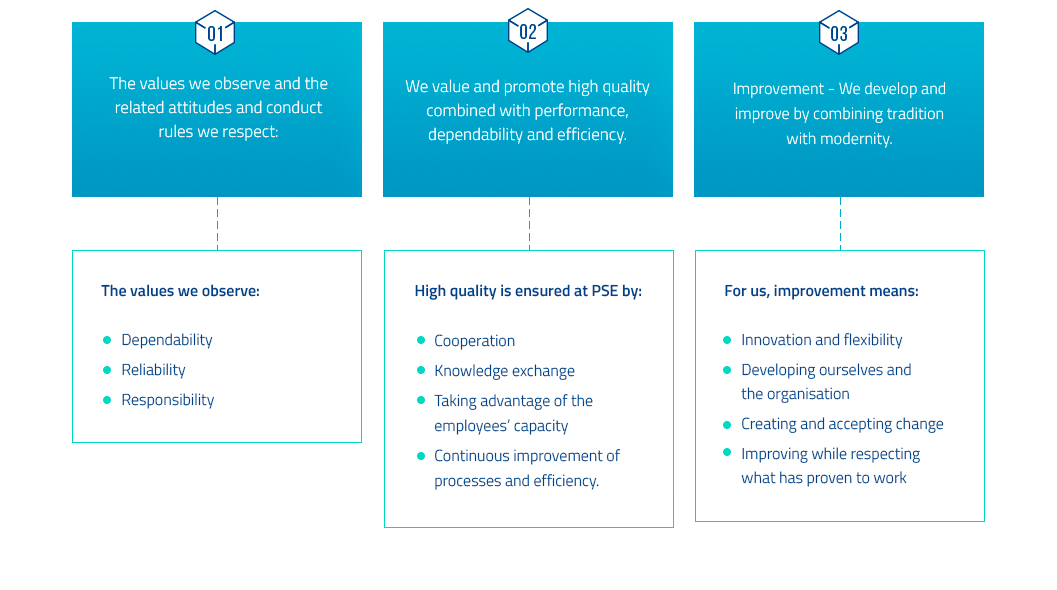SMART SEMINARIA are a cycle of lectures aimed to disseminate and exchange knowledge, dedicated to a wide group of PSE employees. The subjects of the seminars are diverse and depend on current needs.
In 2018, SMART Seminars were conducted both on the sector-specific subjects, concerning the national capacity market and energy for non-energy engineers, and in the areas of motivation, work-life balance and savoir-vivre in business. Video recordings of seminars are available in the Intranet and can be reviewed at any time.
OHI survey
In 2018, we conducted a heath survey among employees using the OHI (Organisational Health Index) survey.
The survey is a significant part of the programme which is aimed to create an innovative organisation which is capable of quick adaptation. As part of the survey, the values present at PSE were assessed as well as those desired in future. According to our employees’ opinion, our greatest strength is a sense of responsibility, and the greatest weakness is motivation. The hierarchical structure was often indicated as a problem that hinders daily work and makes decision-making a rigid and lengthy process. The positive values indicated during the survey were: responsibility, professional development and having a vision.
More than 1,330 people participated in the survey conducted in 2018, a turnout rate of 59%. The high turnout showed a high degree of the employees’ engagement in what happens at the company. The result was lower than that recorded in 2017, which is due to a difficult adaptation period the company has been experiencing in consequence of many changes made. The survey results allowed us to diagnose the strengths of the organisation and areas that need improving.
Employees appraisal system, management by objectives
In 2018, a three-level performance appraisal system was in place, introduced a year before for employees in specialist positions. All employees of are subject to performance appraisal. In specialist positions, the appraisal is performed on a quarterly basis (provided that at least 1/3 of the billing period has been worked).
The management staff, legal counsel and experts were covered by a management system providing for the achievement of strategic objectives cascaded by the Management Board and based on the company’s strategy. Management by objectives is a complex and performance-oriented method of appraisal, and additionally – and very importantly – it is conducive to boosting the commitment of the staff to the pursuit of strategic objectives and facilitates the monitoring of the achievement of those objectives. The introduction of the system was preceded by training courses and workshops which involved all staff.
The consequence of the introduction of management by objectives for management staff, legal counsels and experts is a new bonus system based on an appraisal of work performance. Appraisal of performance against objectives and payment of bonuses takes place on a semi-annual basis.










